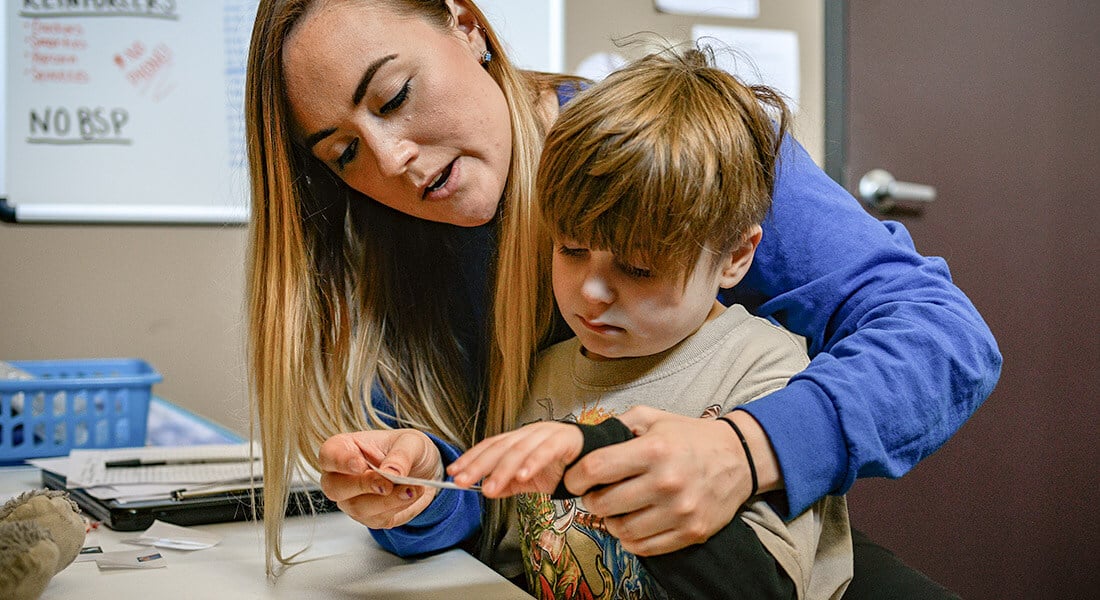Introduction
Applied Behavior Analysis (ABA) is a widely recognized therapeutic approach for individuals with autism and other developmental disorders. Two key roles emerge within this framework: Board-Certified Behavior Analysts (BCBAs) and ABA therapists. Understanding the differences and responsibilities of these professionals is crucial for anyone involved in the field of ABA when considering ABA vs. BCBA.
What is ABA vs BCBA?
Applied Behavior Analysis (ABA) is a scientific discipline that focuses on understanding and modifying behavior. When discussing ABA vs. BCBA, it is essential to note that while ABA involves applying behavioral principles, BCBAs are the certified professionals who oversee and implement these strategies to bring about meaningful and positive changes in behavior.
Core Principles of ABA
- Behavioral Assessment: Analyzing behaviors to identify patterns and triggers.
- Data Collection: Monitoring progress through systematic data collection methods.
- Intervention Design: Developing tailored interventions based on individual needs.
- Ongoing Evaluation: Continuously assess the effectiveness of interventions and make necessary adjustments.
Success Stories
“Move Up ABA has been a lifeline for our family. Before starting therapy, our son struggled with daily routines and communication. Now, he’s more independent and even initiated a conversation with a classmate for the first time! The progress we’ve seen in just six months is truly remarkable.”
- Emily R., Silver Spring, Accountant
“As a single dad, I was overwhelmed trying to manage my child’s behavior. The Move Up ABA team not only provided amazing support for my little girl but also taught me practical strategies to use at home. Their in-home sessions fit perfectly with our busy schedule. I’m so grateful for their patience and expertise.”
- Michael T., Rockville, Middle School Teacher
“We were hesitant about starting ABA therapy, but Move Up ABA’s approach put us at ease from day one. Our twins have made incredible strides in their social skills and self-regulation. The therapists are like extended family now, and we couldn’t be happier with our decision to work with them.”
- Aisha and James L., Simpson, Police Officers
Ready to start your child's journey to success? Schedule a free consultation today! 📞 Call (410) 497-8865.
The Role of BCBAs
Board-certified behavior Analysts are highly trained professionals who oversee the implementation of ABA programs.
They are responsible for ensuring that interventions are evidence-based and effective. In addition, they also uphold RBT or ABA ethic
Key Responsibilities of BCBAs

- Conduct Assessments: BCBAs perform comprehensive assessments to identify clients’ specific needs.
- Develop Treatment Plans: They create individualized behavior intervention plans (BIPs) based on assessment data.
- Supervise ABA Therapists: BCBAs supervise and train ABA therapists, ensuring adherence to best practices.
- Monitor Progress: They regularly review data to assess the effectiveness of interventions and make necessary adjustments.
Qualifications and Training
To become a BCBA, candidates must complete a master’s degree in behavior analysis or a related field, followed by extensive supervised experience and successful completion of the BCBA exam.
The Role of ABA Therapists

ABA therapists, also known as Registered Behavior Technicians (RBTs) or behavior interventionists, implement the behavior plans developed by BCBAs.
They work directly with clients to facilitate learning and behavioral change.
Key Responsibilities of ABA Therapists
- Implement Treatment Plans: ABA therapists follow the strategies outlined in BIPs and apply them in real-world settings.
- Collect Data: They gather data on client progress and report this information to the supervising BCBA.
- Provide Support: ABA therapists offer emotional and behavioral support to clients, fostering a positive learning environment.
- Engage with Families: They often work closely with families, educating them about strategies to support their loved ones at home.
Qualifications and Training
ABA therapists typically hold a bachelor’s degree in psychology, education, or a related field. To become RBTs, they must complete a 40-hour training course and pass a competency assessment.

The Collaborative Relationship of BCBA and ABA
The relationship between BCBAs and ABA therapists is collaborative and essential for effective intervention.
When considering ABA vs BCBA, it’s important to understand that BCBAs rely on the data and insights provided by ABA therapists to effectively adjust treatment plans and strategies.
Communication and Feedback of BCBA and ABA
Regular communication between BCBAs and ABA therapists is vital. BCBAs provide ongoing supervision and feedback, while ABA therapists share observations and data from sessions, fostering a team-oriented approach to client care.
Conclusion
Understanding the distinct roles of BCBAs and ABA therapists is crucial for anyone involved in applied behavior analysis. Both professionals are integral in delivering effective interventions and improving the lives of individuals with developmental disorders. By recognizing their responsibilities and training pathways, stakeholders can better appreciate the collaborative effort required in ABA therapy.





